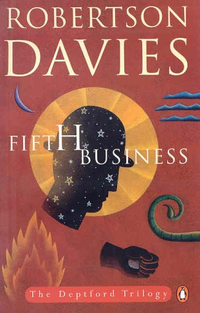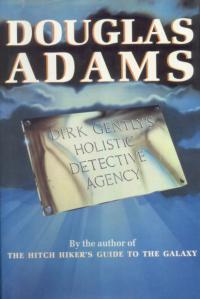Wednesday, September 2: Tune It Or Die!
NON-MYSTERIES FOR THE MYSTERY FAN
by Rob Lopresti
No mysteries today. Instead I want to discuss some of my favorite novels that are almost mysteries, books that practically achieve that high standard. In other words, books that, ahem, transcend the mainstream, and almost acquire genre-dom.
Island
 This is a novel about con artists, written by a certified great thriller writer, Thomas Perry. So why doesn’t it qualify as a mystery?
This is a novel about con artists, written by a certified great thriller writer, Thomas Perry. So why doesn’t it qualify as a mystery?
Well, it’s like this. On page one husband and wife Harry and Emma steal a whole lot of money from a very bad man. For safety they escape to the Caribbean and start looking for a place to invest their loot. Harry notices that there are a lot of islands so small that no country has bothered to claim them.
Hmm, Harry thinks. What if you steal shiploads of trash and dump them on top of one island until it is big enough to build on? Then you declare it the homeland of some almost-extinct Caribbean tribe, set up Cayman Island-style banks, and wait for the dirty money to start rolling in. Pretty clever, no?
Pretty clever, yes. In fact, one bank thinks it is so brilliant they want to conduct a hostile takeover. Hostile as in guns and helicopters. But there are much bigger problems: if you are running a country, even as a scam, what do you need to have laws about? Marriage? Divorce? Theft? And while your target audience may be shady tax-dodging millionaires, what do you do when boatloads of refugees arrive?
Island is not a mystery. It is a utopian novel, with the utopia designed by a couple of crooks. And it is one of the books I reread every few years.
Dreaming Of Babylon
 Ah, San Francisco in the Forties. A private eye on a hot case with a mysterious client. Surely this is a mystery?
Ah, San Francisco in the Forties. A private eye on a hot case with a mysterious client. Surely this is a mystery?
Well, no. It’s a Richard Brautigan novel, and whatever he set out to write – Western, Suspense, Horror, Fantasy – what always came out was a Richard Brautigan novel. They are their own genre, and only vaguely connect with other books, or with reality. This one is hilarious.
C. Card is our private eye. Just about every private eye seems to be down on his luck, but Card couldn’t find his luck with a stepladder. He spends the first part of the book just trying to borrow some bullets for his gun. .
There’s a reason for his misery. You see, ever since he got hit on the head with a pitch while trying out for major league baseball he has had a habit of fading out of reality and into bizarre dreams of life in ancient Babylon. Sort of inconvenient if a thug is pointing a gun at you when you drift away…
Brautigan isn’t for everyone, but I love this one.
Fifth Business
 Robertson Davies was a brilliant Canadian author with a weird problem. He wrote trilogies by accident. There he would be, innocently writing what he thought was a standalone novel, and the next thing he knew, he had two sequels. This happened three times (a trilogy of trilogies).
Robertson Davies was a brilliant Canadian author with a weird problem. He wrote trilogies by accident. There he would be, innocently writing what he thought was a standalone novel, and the next thing he knew, he had two sequels. This happened three times (a trilogy of trilogies).
Fifth Business is the first book in the Deptford Trilogy. On the first page two boys are walking home from a day of sledding in a small Ontario town. One throws a snowball at the other, who ducks. The snowball hits a pregnant woman in the back of the head and she goes into a coma. She never fully recovers and the baby is born two months premature.
This novel is the life story of the boy who ducked. The second novel,The Manticore, tells about the son of the boy who threw the snowball. And World of Wonders is the life of the boy who was born premature.
Detective stories? Well, not exactly. But Otto Penzler says a mystery is a story in which a crime or the threat of a crime is a major element, and Robertson Davies will try hard to convince you that that erring snowball was a crime. Then, halfway through the first book there is a mysterious death – Suicide? Accident? Murder? – and several possible explanations for it will be offered as the books go on.
Wonderful writing.
The Woman Who Walked Into Doors
 I admit I am stretching a point for this one because Roddy Doyle’s book is one of my favorite novels. Remember Otto Penzler’s definition above? The crime in this book is wife-battering. Paula Spencer was abused by her petty-thief husband. By the time the novel starts she has left him and started a grim new life, but in the course of this book you will learn her whole gut-wrenching, courageous history.
I admit I am stretching a point for this one because Roddy Doyle’s book is one of my favorite novels. Remember Otto Penzler’s definition above? The crime in this book is wife-battering. Paula Spencer was abused by her petty-thief husband. By the time the novel starts she has left him and started a grim new life, but in the course of this book you will learn her whole gut-wrenching, courageous history.
And if you don’t think a battered-woman-turned-alcoholic-cleaning lady can be an epic hero, prepare to be re-educated. Doyle wrote a sequel ten years later, Paula Spencer, and I put off reading it for months, for fear it wouldn’t live up to the first book. Happily, I had nothing to worry about.
Dirk Gently’s Holistic Detective Agency
 Douglas Adams is best known as the author of The Hitchhiker’s Guide to the Galaxy and its sequels, but this book is science fiction/fantasy with a private eye fronting it. Dirk is not a great success although his holistic approach is unique (“We solve the whole crime. We find the whole person.”) He has a somewhat unique relationship with fate, and in this book he blunders into a murder that just might result in the destruction of the world.
Douglas Adams is best known as the author of The Hitchhiker’s Guide to the Galaxy and its sequels, but this book is science fiction/fantasy with a private eye fronting it. Dirk is not a great success although his holistic approach is unique (“We solve the whole crime. We find the whole person.”) He has a somewhat unique relationship with fate, and in this book he blunders into a murder that just might result in the destruction of the world.
Some of my favorite bits: The Electric Monk, a sort of robot that believes things, so you don’t have to. A sofa that was brought halfway up the stairs to its destination apartment but now, inexplicably, cannot be moved further up or down. And a software program called Reason; you tell it what you want to do and it rationalizes as to why you should do it. (But don’t bother looking for this program at the mall; according to Adams the U.S. Military bought up all rights.)
Adams was a writer for the British science fiction series Doctor Who and parts of the plot of this book were lifted from an episode that was cancelled due to a strike and other parts were taken from an episode that did get shown. But Dirk Gently is uniquely Dirk Gently. “My dear Mrs. Sauskind, let me say this. Do not worry yourself about this bill, do not let it alarm or discomfit you. Do no, I beg you, let it become a source of anxiety to you. Just grit your teeth and pay it.”
So, how about you? What non-mystery novels do you recommend to your mystery-loving friends?




















I think a great many people miss out on wonderful stories because they don’t have the right “tag” on them. Patry Francis’ “The Liar’s Diary” is tagged a psychological thriller, but the cover points toward “chick-lit” and the book is both and neither. It’s the story of friendship and how one woman changes the lives of everyone around her, both in her life and her death. No romance, no deep mystery to be solved, just a perfect noir story.
Rob, what an intriguing list. Thanks so much.
Terrie
You sold me on “Fifth Business” and “Yhe Woman Who Walked into Doors” if I can find them around here.
Just the other day I read an article where someone pointed out that Stoker’s novel Dracula is a mystery. A ruthless killer, the puzzle of this man from the mountains and the hearty band who are trying to track him down. And I’ll mention H.G. Wells’ The Invisible Man (crimes include burglary, murder, planned world domination and public nudity). And the book is incredibly funny in places!
Hi, Steve.
There is a whole genre, I will suggest, that combines mystery with fantasy and science fiction–of note, occult detective fiction: William Hope Hodgson’s “Carnaki,” Seabury Quinn’s “Jules de Grandin”, Many Wade Wellman’s “John Thunstone”, Joseph Payne Brennan’s “Lucius Leffing”, Randall Garrett’s “Lord Darcy”, to current best-selling author Jim Butcher’s “Harry Dresden.”
–and, also of note, sf mysteries:
Isaac Asimov’s “Elijah Bailey,” Jack Vance’s “Magnus Ridolph,” Larry Niven’s “Gil Hamilton,” and (of course) Philip K. Dick’s “Rick Dekard” made infamous by BladeRunner. I’d recommend them all.
I so adore Dirk Gently’s (that and the sequel Dark Teatime of the Soul) that I trust you enough now to take a chance on Brautigan’s Babylon.
A very strange novel of cards, Vegas, occult confluences, death and crime is Tim Powers’ Last Call which I love, too, though I don’t exactly know what it is either. Fantasy sure, but grounded, archetypal strangeness.